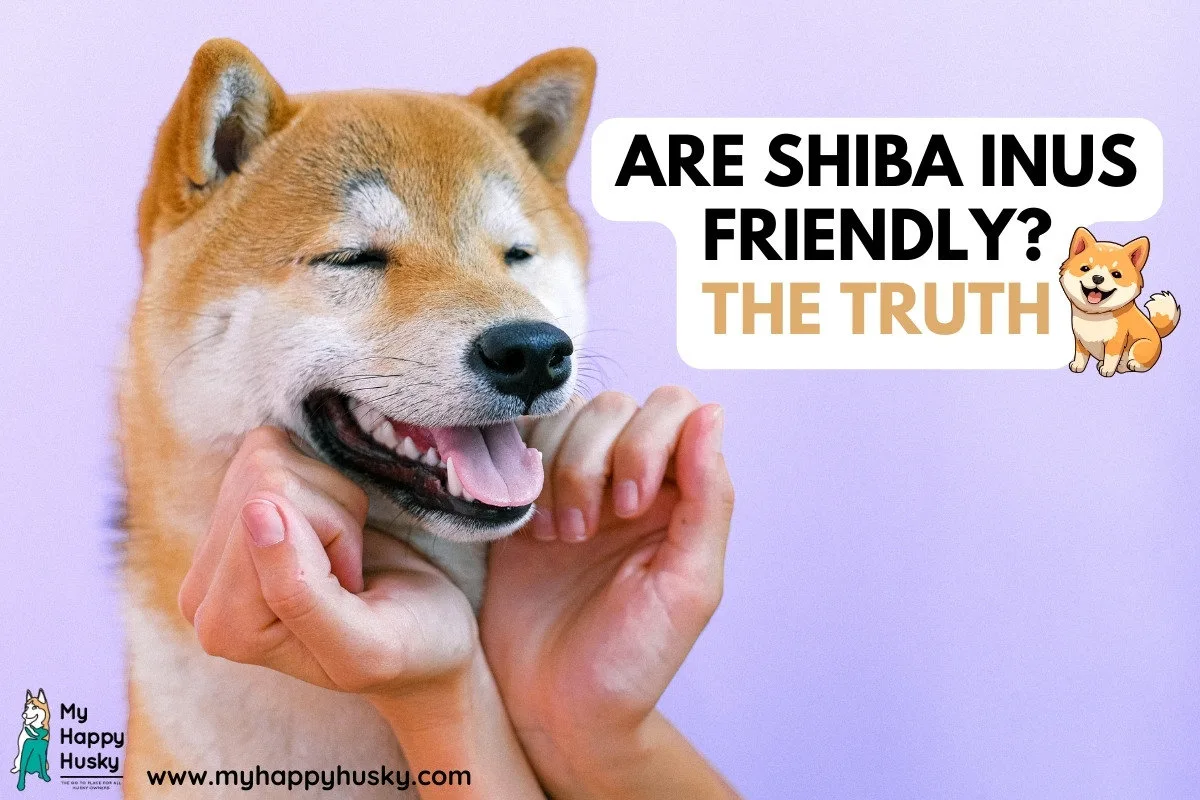Shiba Inus are an ancient Japanese breed known for their spirited personality and independent nature. While they are loyal and affectionate to their family, understanding their unique temperament is key to deciphering their level of friendliness.
Shiba Inus are naturally fairly reserved, especially when it comes to strangers or unknown dogs. However, the truth is, it’s socialization what determines a dog’s friendliness the most, and this is something we have control over.
I’ll explain this more below.

What Defines a Shiba Inu’s Friendliness?
Shiba Inus exhibit a different kind of friendliness compared to other dog breeds. They are often reserved and dignified, showing affection in more subtle ways. Typically, they are not overly demonstrative, preferring a level of autonomy in their interactions.
Are Shiba Inus Good with Families?
Shiba Inus can be good family dogs if raised in a loving, respectful environment. They tend to form strong bonds with their family members but may always retain a sense of independence. Early socialization and consistent training are crucial in helping them adapt well to family life and understand appropriate behaviors.
How Do Shiba Inus Interact with Strangers?
Shiba Inus are naturally cautious and reserved around strangers. They are not typically the type to immediately warm up to new people. However, with proper introductions and positive experiences, they can learn to be polite and even friendly with unfamiliar individuals.
Are Shiba Inus Good with Other Animals?
Their prey drive and independent nature mean that Shiba Inus can sometimes be challenging around other animals, especially smaller ones. However, with proper socialization from a young age, many Shiba Inus learn to coexist peacefully with other pets, although they may prefer being the only pet.
Below is an example of socialization at it’s best. While it’s important to start socialization young, it STILL needs to happen continously throughout their adult years.
Training and Socialization: Key to a Friendly Shiba Inu
Training and socialization are vital in shaping a Shiba Inu’s friendliness. Exposing them to various people, environments, and other animals in a controlled, positive manner can significantly improve their sociability. Training should focus on obedience and manners, helping them understand how to interact appropriately.
Socialization should happen immediately from when you get your Shiba Inu home at around 8 weeks old. By exposing your Shiba to new people and healthy friendly dogs, they will learn crucial social skills that will allow them to remain relaxed, happy, and positive whenever they come across someone or something new. This is a trainable trait!
So, as I mentioned at the start, the truth is, ANY Shiba Inu can be incredibly friendly, if they are taught to be.
Considerations for Potential Owners
Prospective Shiba Inu owners should consider the breed’s temperament and needs. They require a confident owner who understands canine behaviors and can provide firm, consistent training. Additionally, understanding and respecting their independent nature is crucial in building a strong, positive relationship.
Conclusion: The Friendly Facets of Shiba Inus
Shiba Inus can be friendly, but their approach to friendliness is often different from other breeds. They value their independence and may not seek constant affection, but they are loyal and can form deep bonds with their families. With proper socialization and training, a Shiba Inu can be a delightful, well-mannered companion, capable of showing affection and friendliness in their unique way.
Disclaimer
The advice given in this article is for educational purposes only and does not constitute professional advice in any context. Before making any decisions that may affect the health and/or safety of your dog, you should always consult a trained veterinarian in your local area. For the FULL disclaimer Visit HereCopyright Notice: The content produced and published on My Happy Husky is unique and original. My Happy Husky makes an active effort to search for plagiarized content using plagiarism detection software. If plagiarized content is found, action will be taken.
